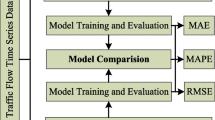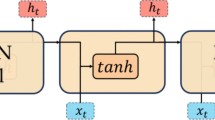Abstract
Modern deep learning algorithms are able to handle large amounts of data and therefore are particularly important in automating vessel movement prediction in intensive shipping. This could be one of the support tools for monitoring, managing the increasing maritime traffic and its participants.
Applying deep learning algorithm, a recurrent networks is created that is able to predict the further vessel movement. The developed architectural model is based on sequences when data change over time, therefore the article investigates the most optimal recurrent network structure and network hyper-parameters, which aim to obtain the most accurate prediction results. Different recurrent network architectures were used to compare the results those are: fully-connected (simple) recurrent neural network, basic (vanilla), bidirectional, stacked Long Short-Term Memory network, autoencoder, and gated recurrent unit. The accuracy of the predictions for each architecture is monitored by varying the number of cells size in the hidden layer. The research was performed on a specific sample of data from the Netherlands (North Sea) coastal region and the proposed algorithm can be applied as one of the ways to improve maritime safety. The research showed that the most accurate prediction of the vessel trajectory prediction is achieved with the bidirectional Long Short-Term Memory network architecture in which the variance is less shifting even with the smallest cell selection, and autoenoder network architecture which depends on the choice of the appropriate cell size, because distribution range increasing in 100 and 150 cells.
Access this chapter
Tax calculation will be finalised at checkout
Purchases are for personal use only
Similar content being viewed by others
References
Seltmann, A.: Marine insurance - casualty trends. CEFOR publications 2019 Nordic marine insurance statistics. The Nordic Association of Marine Insurers, Oslo, Norway (2019)
Chen, C.W., Harrison, C., Huang, H.H.: The unsupervised method of vessel movement trajectory prediction. ArXiv, volume abs/2007.13712 (2020)
Forti, N., Millefiori, L.M., Braca, P., Willett, P.: Prediction of vessel trajectories from AIS data via sequence-to-sequence recurrent neural networks. Research Department, NATO STO Centre for Maritime Research and Experimentation (CMRE) Department of Electrical and Computer Engineering, Barcelona, Spain, pp. 8931–8935 (2020). ISBN 978-1-5090-6631-5. https://doi.org/10.1109/ICASSP40776.2020.9054421
Gao, D., Zhu, Y., Zhang, J., He, Y., Yan, K., Yan, B.: A novel MP-LSTM method for ship trajectory prediction based on AIS data. Ocean Eng. 228, 108956 (2021). https://doi.org/10.1016/j.oceaneng.2021.108956
United Nations Conference on Trade and Development.: Review of Maritime Transport 2020. United Nations Publications, Geneva (2020). ISSN 0566-7682
Venskus, J., Treigys, P., Markevičiūtė, J.: Detecting maritime traffic anomalies with long-short term memory recurrent neural network. In: Nonlinear Analysis: Modelling and Control, Vilnius (2020). ISSN 1392-5113
Liu, X., Gherbi, A., Li, W., Cheriet, M.: Multi features and multi-time steps LSTM based methodology for bike sharing availability prediction. Proc. Comput. Sci. 155, 394–401 (2019). The 14th International Conference on Future Networks and Communications (FNC), Halifax, Canada
Rizal, A.A., Soraya, S., Tajuddin, M.: Sequence to sequence analysis with long short term memory for tourist arrivals prediction. In: Journal of Physics: Conference Series, Indonesia, pp. 1–8 (2018). https://doi.org/10.1088/1742-6596/1211/1/012024
Vinayakumar, R., Soman, K.P., Prabaharan, P.: Applying deep learning approaches for network traffic prediction. In: 2017 International Conference on Advances in Computing, Communications and Informatics (ICACCI), pp. 2353–2358. Amrita Vishwa Vidyapeetham, India (2017). ISBN 978-1-5090-6367-3
Yang, S., Xinya, P., Zexuan, D., Jiansen, Z.: An approach to ship behavior prediction based on AIS and RNN optimization model. SciencePG: Int. J. Transp. Eng. Technol. 16–21 (2020). ISSN 2575-1743. https://doi.org/10.11648/j.ijtet.20200601.13
Cheng, Y., Zhang, W.: Concise deep reinforcement learning obstacle avoidance for under actuated unmanned marine vessels. Neurocomputing 272, 63–73 (2018)
Liu, C., Li, Y., Jiang, R., Lu, Q., Guo, Z.: Trajectory-based data delivery algorithm in maritime vessel networks based on Bi-LSTM. In: Yu, D., Dressler, F., Yu, J. (eds.) WASA 2020. LNCS, vol. 12384, pp. 298–308. Springer, Cham (2020). https://doi.org/10.1007/978-3-030-59016-1_25
Li, Y., Cao, H.: Prediction for tourism flow based on LSTM neural network. Proc. Comput. Sci. 129, 277–283 (2018). 2017 International Conference on Identification, Information and Knowledge in the Internet of Things, China
Murray, B., Prasad, L.P.: A dual linear autoencoder approach for vessel trajectory prediction using historical AIS data. Ocean Eng. 209, 107478 (2020). https://doi.org/10.1016/j.oceaneng.2020.107478
Venskus, J., Treigys, P.: Preparation of training data by filling in missing vessel type data using deep multi-stacked LSTM neural network for abnormal marine traffic evaluation. In: ITISE 2019: International Conference on Time Series and Forecasting: Proceedings of Abstracts, Granada, Spain, p. 38 (2019). ISBN 9788417970796
Author information
Authors and Affiliations
Corresponding author
Editor information
Editors and Affiliations
Rights and permissions
Copyright information
© 2021 Springer Nature Switzerland AG
About this paper
Cite this paper
Jurkus, R., Treigys, P., Venskus, J. (2021). Investigation of Recurrent Neural Network Architectures for Prediction of Vessel Trajectory. In: Lopata, A., Gudonienė, D., Butkienė, R. (eds) Information and Software Technologies. ICIST 2021. Communications in Computer and Information Science, vol 1486. Springer, Cham. https://doi.org/10.1007/978-3-030-88304-1_16
Download citation
DOI: https://doi.org/10.1007/978-3-030-88304-1_16
Published:
Publisher Name: Springer, Cham
Print ISBN: 978-3-030-88303-4
Online ISBN: 978-3-030-88304-1
eBook Packages: Computer ScienceComputer Science (R0)




